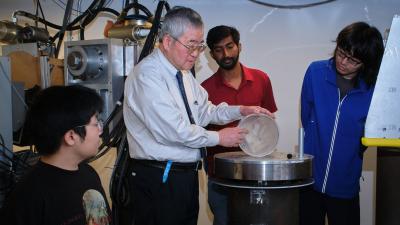RPI Faculty Among World’s Most-Cited Researchers
Two RPI researchers, Ge Wang, Ph.D., Clark & Crossan Endowed Chair Professor and director of the Biomedical Imaging Center at RPI, and Fudong Han, Ph.D., associate professor and Priti & Mukesh Chatter '82 Career Development Chair, have earned a spot on Clarivate’s 2025 Highly Cited Researchers list.


